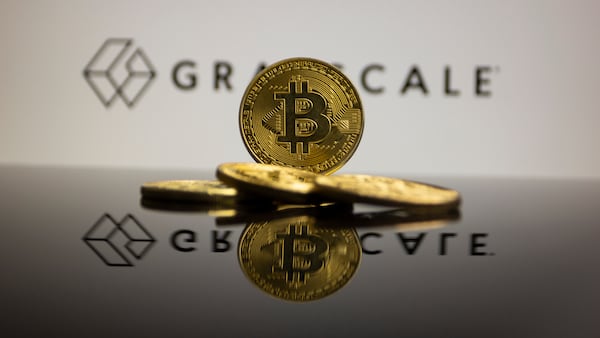- Grayscale is unlikely to sue the SEC for Ethereum ETFs like it did for Bitcoin.
- Pricing was one issue. Its ETF has hemorrhaged $17 billion in Bitcoin since January.
Crypto asset manager Grayscale is unlikely to go to war again for Ethereum.
Grayscale famously sued the Securities and Exchange Commission in 2022 in a fight to offer customers Bitcoin ETFs. The case went in its favour, and paved the way for the products to launch.
But now?
“They’re probably just like, ‘To hell with it. Let somebody else step up this time,’” Bloomberg Intelligence ETF analyst Eric Balchunas told DL News.
The firm this week withdrew a filing that would’ve made it harder for the SEC to defend the denial of Ethereum spot ETFs in court.
“They’re just sort of taking their ball and going home,” Balchunas said.
“And part of me doesn’t blame them. It’s not just money — it’s bandwidth, it’s attention.”
Learning from Bitcoin
The SEC spent years shooting down Bitcoin spot ETF applications before Grayscale filed a lawsuit against the regulator in protest in 2022.
The courts agreed something was wrong.
In September, a judge found that the SEC had acted in an “arbitrary and capricious” manner by denying the applications.
So Grayscale was able to convert its Bitcoin trust into a spot ETF — finally giving the option for investors to exit the fund if they chose to. And 10 other firms, including BlackRock and Fidelity, launched their own ETFs.
But the move backfired on Grayscale. Its ETF has hemorrhaged over $17 billion in Bitcoin since January, while BlackRock and Fidelity’s funds have vacuumed more than $23 billion in assets.
Balchunas said Grayscale probably didn’t expect outflows to be so violent.
“Seventy-eight days of straight outflows. They broke all records,” he said. “They didn’t realise how hardcore the US ETF market is.”
At issue was Grayscale’s 1.5% management fee, which turned out to be multiples higher than their competitors’ 0.2% or 0.3% fees.
“They probably thought everybody would be between 0.7% and 1%, so they wouldn’t be too far away at 1.5%,” Balchunas said.
Ethereum ETFs
Grayscale’s Ethereum trust has almost $9 billion in assets — which would likely bleed away if the vehicle were converted into a proper ETF.
These funds are trapped, as the current structure doesn’t permit redemptions. Grayscale makes a solid 2.5% fee on those assets.
The other issue is that demand for an Ethereum ETF simply isn’t as strong as for the Bitcoin ETF.
Balchunas predicted that, if they do launch, Ethereum ETFs will only get about 10% to 15% of the assets that Bitcoin ETFs garnered.
“Grayscale has less to lose” by not fighting for the Ethereum ETFs, Balchunas said. “Bitcoin ETFs are the headlining act.”
Ethereum ETFs “will never have the same fever pitch attention around their approval.”
Tom Carreras is a markets correspondent at DL News. Got a tip about Grayscale and Ethereum ETFs? Reach out at tcarreras@dlnews.com




